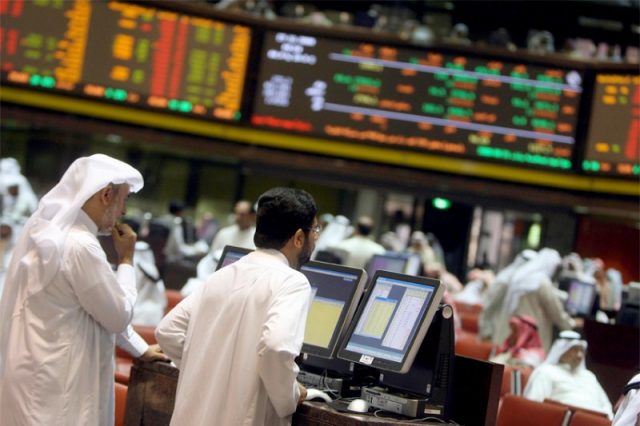UAE, Qatar and Saudi Arabia gets ready for Value Added Tax
Oil rich Gulf countries, which for decades have involved millions of foreign workers thanks to their status as tax free havens, aim to introduce value added tax in 2018 to plug budget gaps.
On top of managerial and technical hurdles, however, the project now faces a unique diplomatic crisis after Saudi Arabia, the United Arab Emirates and Bahrain on June 5 severed all ties with Qatar, their partner in the “Gulf Cooperation Council.”
Saudi Arabia, the UAE and Qatar are due to introduce Value Added Tax (VAT) in early 2018, with the other three GCC members Bahrain, Kuwait and Oman following at a later date.
In case of a prolonged crisis, Qatar would have to replace imports from Saudi Arabia and UAE, valued at $4.55 billion annually, with “costlier” non GCC goods, said M.R Raghu, head of research at the Kuwait Financial Centre (MARKAZ).
“Implementing VAT in such a scenario would lead to inflationary pressures, especially in food related items,” said Raghu
“If the crisis is prolonged, then Qatar might want to delay the implementation of this envisaged tax reform to balance any spike in prices of commodities in the local markets.”
If it goes ahead as planned, VAT is unlikely to tarnish the GCC reputation as a low tax region or reduce its appeal to expatriates, according to Monica Malik, chief economist at Abu Dhabi Commercial Bank.
An introductory rate of five percent “looks to balance raising government revenue and still having a very attractive business environment, both for expatriates and corporations”, said Monica
“We believe the UAE and the Gulf will still overall be seen as a low tax environment on a global basis.”
VAT, a tax paid by the consumer, is also unlikely to prevent businesses from setting up operations in the Gulf region, according to Jeanine Daou, indirect tax leader at PwC Middle East.
“From a business perspective, VAT should be neutral. What businesses are required to do is to collect tax on behalf of the government on their sales, it is not a corporate tax,” she said.
She said that five percent would be “one of the lowest VAT rates across the globe”.
However in Dubai’s old souk, a wholesale trader disagreed, expressing dread of having to bear the VAT cost due to low profit margins.
“I think five percent will be too much,” said Obaid Tahiri sitting in his household appliances shop.
“For wholesale, we don’t have five percent profit. Clients will not pay; I cannot increase the price for the customer.”
Even if the UAE has announced plans to introduce VAT in January next year, many wholesale traders in the souk seem unaware of it.
“Until now, the government has not told us anything about tax,” said Abdullah al-Marzouqi, another trader.
The introduction of VAT is part of measures being taken by the energy rich monarchies to reduce dependency on oil profits and to diversify income.
“The governments’ objective is to diversify their revenue sources. It is about fiscal sustainability for the future. So, implementing VAT is an important tool allowing government to generate more revenue,” said Daou.
Although the five percent rate is unlikely to address the financial pressure faced by Gulf governments, “it is a tool for future fiscal sustainability”.
Monica Malik says that, the introduction of VAT across the six nations is expected to provide revenues of up to 1.5 percent of total gross domestic product.
“The aim is not to end the fiscal deficit. It is rather to deepen and widen non-oil revenue,” she said, noting that hydrocarbons still account for between 50 and 90 percent of government revenues in GCC countries.
Watch your favorite programs, documentaries, informative packages and latest NEWS(English and Urdu).
Watch Humsub tv Live Streaming here: Humsub.tv
Read Latest Articles and News here: humsub
About Us
Introduction
HumSub TV is Pakistan’s leading forwarding-thinking, edutainment channel, aimed at promoting and upholding peace, interfaith harmony and social responsibility within Pakistan through informative and insightful programmes and documentaries; analytical interviews on issues pertaining to social, economic, legal and environmental set-up; dedicated shows to canvass and thereby promote the culture and heritage of Pakistan and in-depth coverage of national and international news.
HumSub TV is the first channel and thus a pioneer within its own right that mainly focuses on emphasising the “Rights” as well as the “Obligations” of the citizens in light of the Constitution of Pakistan, numerous International declarations signed by the Government and various laws that have been promulgated over the years but are not in the knowledge of the common citizen.
HumSub TV also aims to enter into bilateral agreements with other countries to promote not only their culture, heritage and tourism, but also their educational and medical facilities.
Following the successful launch of HumSub TV’s head office in Blue Area, Islamabad; the bureau office has been set up in Lahore.

